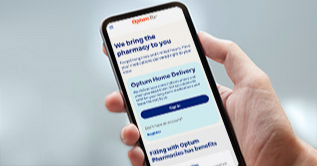If you can’t take your medication with you in an emergency
- We have locations across the United States to help you get your medication.
- We may be able to ship an emergency supply of your medication to a temporary address or will update the address for a recently placed order.
- If we cannot ship to you, we will also help you get a supply of your medication from an alternate pharmacy.
Call your applicable Optum pharmacy or the number on your prescription label for help.
Storing your medication in an emergency
If you lose power or need to evacuate, make plans to store your medication.
- Check the label of your medication to see what the temperature storage requirements are. Some medications need to be refrigerated to keep their strength and be safe for you to use.
- If your medication requires constant refrigeration/cooling, take steps to keep it safe:
- Pack a small cooler for your medication, using ice packs or ice to keep it cold.
- Put medication in a waterproof container or bag.
- Don't let the medication touch ice directly. Put a piece of cardboard or cloth between the medication container and the ice.
- Don't use dry ice - it may be too cold and could freeze your medication.
Find a shelter
Search for a Red Cross shelter near you. These shelters can provide ice for medication storage and other emergency assistance. If you evacuate your home, tell your family and friends where you’re going.
- Visit redcross.org/get-help
- Text SHELTER and your ZIP code to 43362 (4FEMA)
- Download the FEMA app by visiting fema.gov/mobile-app
General preparedness
- Ensure that you have enough medication on hand to safely manage your condition.
- Pack a bag with clothes, water, an emergency radio and a flashlight.
- Check flashlight and emergency radio batteries and keep extras on hand.
- Store at least three days’ worth of water for each person in the house.
- Keep emergency health information readily available, including contact information (personal, emergency and doctor), medical history and medication lists.
- If you have a generator, make sure it works and that you have enough fuel to run it for three days. Keep your generator outside – never run a generator indoors.




